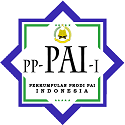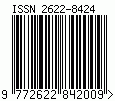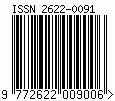Epistemologi Ilmu: Perbandingan Dan Titik Temu Metodologi Ilmu Alam, Ilmu Sosial, Dan Ilmu Agama
DOI:
https://doi.org/10.53640/azkiya.v5i2.1196Keywords:
Positivisme, empiricsm, intidzar, preconception, naturalistic method, sunnatullah, acquired knowledge, perennial knowledgeAbstract
Abstraction
Methodology and approach are fundamental issues in any scientific study.
Methodology is an inseparable part of a scientific study that gives consideration to
the validity and truth of science itself. Methodological confusion resulted in the
value of the validity of the resulting knowledge. The methodology of science is built
on the epistemological conception which is the basis for the selection of research
methods or studies of that science in particular (ad hoc), so that the methodology has
a distinctive style in each discipline. The methodology and approach of a scientific
discipline are closely related to the epistemic conception of the science. Pure science
or natural science, which is generated and based on experience and sensing from
purely empirical reality, not the same as the methodology of the religious sciences
which, apart from being based on observation (intidzar) also involves the heart and
intuition. In the scientific tradition which is dominated by positivism from the
current natural science paradigm, there are methodological conflicts and crises,
which demand new methodologies and approaches. The methodology is built from
paradigmatic assumptions that are accommodative to various disciplines.
Methodology and approach that is the meeting point of various disciplines,
especially the natural, social, and religious sciences. This requires a review in the
realm of epistemology.
Epistemology pays special attention to the sources and methodologies used to obtain
knowledge systematically. Studying the methodology of science, means discussing
issues in the area of epistemology. Epistemologically, the Qur'an mentions that in
general there are three sources of knowledge, the universe, humans, and history.
Thus, the study of the religious sciences is systematically related to the study of the
social and natural sciences, which allows the methodology of another discipline to
be used in the methodology of the religious sciences. These are the things that are
discussed in this article.
Keywords: positivism, empiricism, intidzar, preconception, naturalistic method,
sunnatullah, acquired knowledge, perennial knowledge
References
Abu Sulaim, Abdul Hamid, Permasalahan Metodologis Dalam Pemikiran Islam,
editor Ath-Thayib Zain Al-‘Abidin, terj. Rifyal Ka’bah, Jakarta: Media Dakwah,
Ali, Mukti, Metodologi Memahami Agama Islam, Jakarta: Bulan Bintang, 1991.
Capra Fritjop, Menyatu Dengan Semesta: Menyingkap Batas Antara Sains
Spiritualitas, terj. Saut Pasaribu, Yogyakarta: Fajar Pustaka, 1999.
-------, The Web Of Life: A New Synthesis of Mind and Matter, terj. Saud Pasaribu,
Yogyakarta: Fajar Pustaka Baru, 2001.
Danusiri, Epistemologi dalam tasawuf Iqbal, Yogyakarta: Pustaka Pelajar, 1996.
Durkheim, Emile, The Rule of Sosiological Method, terj. W.D. Halls, New York:
Macmillan, 1982.
Giddens, Anthony, The Third Way, terj. Ketut Arya Mahardika, cet.III, Jakarta:
Gramedia Pustaka Utama, 2000.
Muhadjir, Noeng, Filasafat Ilmu: Positivisme, Post Positivisme dan Postmodernisme,
Edisi II, Yogyakarta: Rakesarasin, 2001.
Mudzhar, M. Atho, Pendekatan Studi Islam Dalam Teori Dan Praktek, Yogyakarta:
Pustaka Pelajar, 1998.
Nata, Abudin, Metodologi Studi Islam, Cet. IV, Jakarta: RajaGrafindo Perkasa, 2000.
Permata, Ahmad Norma (ed), Metodologi Studi Agama, Yogyakarta: Pustaka Pelajar,
Popper, Karl R, The Defence of Rasionalisme Selection, David Miller (ed.), New
Jersey: Princeton, 1985.
Priyono, A.E dan Saleh, Asmar Oemar, Krisis Ilmu-Ilmu Sosial Dalam Pembanguan
Dunia Ketiga, Yogyakarta, PLP2M, 1984.
Safi, Louay, Ancangan Metodologi Alternatif: Sebuah Refleksi Perbandingan Metode
Penelitian Islam dan Barat, terj. Imam Khoiri, Yogyakarta: Tiara Wacana, 1996.
Taryadi, Alfons, Epistemologi Pemecahan Masalah Menurut Karl R. Popper, Cet.II,
Jakarta: Gramedia Pustaka Utama, 1991.
Downloads
Published
Issue
Section
License
Copyright (c) 2022 Amin Nasrullah

This work is licensed under a Creative Commons Attribution 4.0 International License.











